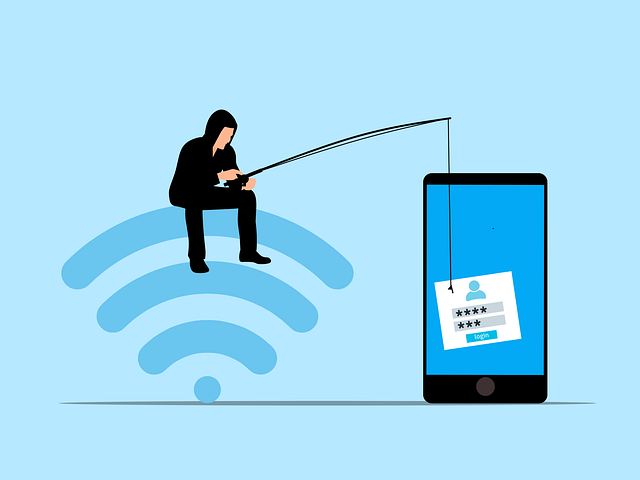If you’re facing cybercrime charges, immediate and informed action is your top priority. Understandably, you might feel overwhelmed, but knowing the next steps can make all the difference. This article provides a clear pathway through the legal tangle, offering practical advice on securing legal representation, preserving your rights, and preparing for court proceedings. Whether it’s identifying an experienced cyber defense lawyer or managing your online presence, we’ll guide you through the essentials of what to do if you’re facing cybercrime charges.
Key Takeaways
- Cybercrime encompasses a wide array of digital offenses such as identity theft, fraud, and ransomware attacks, with severity ranging from misdemeanors to serious federal crimes that may lead to heavy fines and imprisonment.
- Key immediate actions after being charged with cybercrime include hiring an experienced cybercrime defense attorney, preserving any relevant digital evidence, and minimizing discussions about the case to avoid self-incrimination.
- Navigating the legal process involves understanding and complying with legal orders, crafting a defense strategy with the help of legal and IT experts, and considering plea bargains versus trial preparation while managing the emotional and financial toll.
Understanding Cybercrime Charges

In the realm of computer crime, the charges can span a broad spectrum of offenses, all of which involve digital devices like computers, networks, or networked devices. This vast scope of illegal activities executed via cyber means is what sets cybercrime apart from traditional offenses. The landscape of cybercrime legislation, including the Computer Fraud and Abuse Act (CFAA), varies widely from one jurisdiction to another. This legal framework forms the cornerstone for the prosecution of cyber offenses.
Navigating the maze of laws and charges necessitates a thorough understanding of the alleged criminal activities. Activities such as ransomware attacks, email and internet fraud, online scams, and identity fraud are profit-driven and can lead to severe charges at both state and federal levels. At the federal level, the FBI zeroes in on cybercrimes that involve financial and intellectual property theft, cyberattacks, and online child exploitation. Knowledge of these specifics is vital in comprehending the computer crime cases and cybercrime charges leveled against you.
Types of Offenses Under the Umbrella of Cybercrime

The umbrella of computer crimes, a form of criminal activity, encompasses a wide variety of illegal activities often perpetrated by cybercriminals. These range from internet crimes such as:
- theft and fraud
- cyberstalking
- invasion of privacy
- virtual assault
- distributed denial-of-service (DDoS) attacks
- computer hacking
- credential theft
- deployment of malicious software
- cyber terrorism
Certain specific cybercrimes carry serious legal ramifications due to their potential for massive disruption.
More advanced forms of cyberattacks, such as sophisticated intrusions into government systems, can pose significant threats to national security and intellectual property, categorizing them as high-level cybercrimes. Some examples of these crimes include:
- Cyberespionage: the unauthorized intrusion into systems to obtain confidential information from governments or organizations
- Data breaches: the unauthorized access and theft of sensitive information
- Ransomware attacks: the encryption of a victim’s data and a demand for payment in exchange for its release
- Distributed Denial of Service (DDoS) attacks: the overwhelming of a target’s servers with traffic, causing them to crash
The severity of these criminal offenses committed underscores the importance of understanding the various offenses that fall under the umbrella of cybercrime.
The Seriousness of Cybercrime Allegations
The seriousness of cybercrime charges can range from misdemeanors to severe federal crimes. At the state level, the charges can be less severe, but at the federal level, the consequences can include significant prison sentences. Commonly charged cybercrimes include:
- Identity theft
- Credit card fraud
- Computer tampering
- Various forms of unauthorized computer use
The Computer Fraud and Abuse Act (CFAA) empowers federal agencies to investigate and prosecute cyber offenses, often leading to substantial penalties for violators. Depending on the nature of the cyber offense, the consequences can include imprisonment, with some offenses carrying a presumption of imprisonment and potential fines of up to $3,000, or even higher penalties for more serious offenses.
The gravity of such allegations emphasizes the need to grasp the charges and their possible repercussions.
Immediate Steps to Take After Being Charged

Being charged with cybercrime can be a confusing and overwhelming experience. Yet, the initial actions you take can greatly influence your case’s direction. One of the most crucial steps is to contact a criminal defense lawyer without delay. With their expertise, you can better understand the charges and potential consequences you face.
If you are approached by investigators, it’s important to assert your right to remain silent. Express your willingness to cooperate, but request to speak to an attorney first. Unless you’re speaking with your legal counsel, avoid discussing your case with anyone else. If you’re released on bail, strictly adhere to all bail conditions, which may include restrictions on internet access and other activities.
Securing an Experienced Attorney
Securing legal representation with experience in cybercrime is not merely beneficial but crucial to a robust defense when facing such charges. An attorney who specializes in cybercrime defense offers knowledgeable and aggressive representation against the accusations you face. These attorneys have a deep understanding of the technical aspects of cybercrime, which is crucial for conducting a thorough investigation and building a robust defense.
Moreover, hiring an attorney who is familiar with both the legal systems in specific states and federal laws can be beneficial. A lawyer who has experience handling cybercrime cases in your jurisdiction will be well-versed in the relevant laws and procedures, giving you an advantage in your defense.
Handling Evidence and Devices

In cybercrime proceedings, managing evidence and electronic devices forms a vital part of the investigative process. Complying with legal orders, such as search warrants, is crucial as they enable the gathering and analysis of evidence. As a standard procedure in these investigations, law enforcement is likely to seize your electronic devices to gather information pertinent to the case, often after obtaining a search warrant.
In addition to complying with these procedures, it’s also essential to secure and preserve any relevant evidence on your end, including computers, hard drives, and digital records. This evidence could be critical in building your defense and challenging the prosecution’s case.
Navigating the Legal Process

The legal process in cybercrime cases can pose a complex and challenging journey. These cases can involve both state and federal charges, depending on the nature of the alleged offense. As you venture through this intricate legal landscape, the guidance of your attorney is invaluable. Following their expert advice is key to effectively handling the complexities of cybercrime legal proceedings.
As the digital landscape continues to evolve, so do the laws governing it. Therefore, staying informed about the latest developments in cyber law and technology can have significant implications for your case. This information can provide new perspectives and strategies for your defense.
Complying with Legal Orders
Compliance with legal orders forms a fundamental aspect of legal proceedings, particularly in cybercrime cases. Adhering to orders such as search warrants and subpoenas is essential for maintaining the integrity of the investigation and preventing obstruction of justice.
It’s equally crucial to comply with court orders for your electronic devices or online accounts. This not only helps maintain your credibility in the eyes of the court but also helps avoid additional legal complications that could further complicate your case.
Building Your Defense Strategy

When facing cybercrime charges, constructing a solid defense strategy becomes imperative. Your defense attorney plays a pivotal role in crafting this strategy, which includes:
- Negotiations with prosecutors
- Bringing together IT professionals for technical expertise
- The use of expert witnesses in your case to provide essential technical insights and analysis
- Challenging the prosecution’s digital evidence and raising questions about its integrity
- Utilizing forensic tools and techniques to scrutinize the evidence and identify weaknesses in the prosecution’s case
- Potentially recovering data to support your defense
Keeping up to date with technology and legal precedents is also critical for devising defense strategies that may offer alternative explanations or showcase weaknesses in digital evidence. Lastly, documenting your online activities can provide valuable insights and evidence beneficial for mounting a defense in your cybercrime trial.
Protecting Yourself and Your Privacy Online

Protecting your online privacy takes on added significance in the digital age, particularly when dealing with cybercrime charges. One simple way to protect your sensitive information is by creating a secondary email address for subscriptions, online accounts, and online shopping.
This ensures that your primary email, which may be linked with sensitive information, is kept separate from the bulk of your online activities.
Additionally, here are some measures you can take to protect your privacy and prevent further complications in your case:
- Adjust the privacy settings on all your apps, browsers, search engines, and social platforms to restrict access to your details.
- Be cautious about sharing personally identifiable information (PII) on public platforms.
- Ensure restricted access to sensitive documents on cloud storage.
By implementing these measures, you can help safeguard your privacy.
Minimizing Online Activities
While you’re facing cybercrime charges, every step you take in the digital world matters. Being cautious about your online presence during this time can prevent further complications in your case.
Minimizing your digital footprint can help reduce the risk of your online activities being misinterpreted in connection to your case.
Enhancing Social Media Privacy

In today’s interconnected world, social media platforms can be a double-edged sword, especially for those facing cybercrime charges. It’s crucial to enhance your privacy settings on these platforms to ensure that your activities and shared information are not publicly accessible.
Furthermore, here are some tips to protect your privacy on social media:
- Refrain from tagging locations or uploading photos that could inadvertently disclose sensitive personal details.
- Turn off geolocation services on social media apps to prevent sharing precise location information.
- Discuss with friends the importance of consent before sharing content that includes you.
- Adjust settings to control tagged content visibility.
By taking these steps, you can enhance your social media privacy and reduce the risk of your online activities being used against you in your case.
Managing the Emotional and Financial Impact

Dealing with cybercrime charges can be a daunting experience, both emotionally and financially. The emotional toll can include:
- Intense fear
- Anxiety
- Panic
- Frustration
- Self-pity
- Rumination
Individuals dealing with these charges may also face a wave of negative emotions, leading to long-term feelings of embarrassment and shame.
In addition to the emotional impact, the financial implications of cybercrime charges are extensive. These can include:
- Destruction of data
- Fraud
- Reputational harm
- Potential lost productivity
- Costs associated with data and system restoration
Understanding these impacts is the first step toward effectively managing them.
Seeking Emotional Support
Navigating the emotional landscape of a cybercrime case can be challenging. Seeking emotional support can help mitigate the stress and anxiety associated with facing cybercrime charges. Professional support, such as therapy or counseling, provides a structured environment to deal with these emotional impacts.
Alternatively, there are several options for seeking support during the legal process:
- Joining support groups can offer communal empathy and shared experiences, which may alleviate feelings of isolation.
- Actively seeking professional help from therapists or counselors can provide guidance and support.
- Participating in online forums or communities can connect you with others going through similar experiences.
These options are recommended to maintain emotional well-being throughout your case.
Understanding the Financial Implications

Defending against cybercrime charges can be a significant financial burden. Legal consultation fees in cyber liability cases can average around $8,600, with total costs to respond to a cybersecurity claim potentially reaching as high as $73,300. These costs reflect the financial implications of your defense, including attorney’s fees and potential fines.
Understanding these financial implications can help you prepare for the road ahead and manage your resources effectively.
Considering Plea Bargains and Trial Preparation
The legal journey in a cybercrime case often entails contemplating plea bargains and gearing up for a trial. Plea bargains can offer a reduced sentence or a reduction in charges, which might seem beneficial at first glance to a defendant facing cybercrime charges.
However, plea bargains may not always be the most advantageous route for the defendant, particularly if there is credible evidence or a solid argument that could lead to an acquittal or dismissal of charges in a trial.
On the other hand, trial preparation is crucial when the defense believes there is a strong case to be presented to the judge or jury.
This could potentially result in a more favorable outcome than a plea bargain. The choice between a plea bargain and going to trial should be made with strategic consideration, taking into account the details of the case and the expert advice of a qualified defense attorney.
Evaluating Plea Bargain Offers
Plea bargaining provides the following benefits:
- Certainty by avoiding the maximum sentence possible from a trial conviction
- Time savings due to quicker resolution of cases
- Reduction in legal expenses
- Decreased court congestion, allowing for a more efficient legal system
- Upholding the right to a speedy trial
Society benefits from plea bargaining in these ways.
However, plea bargaining is not without its risks. One major risk is that innocent defendants might plead guilty to avoid the unpredictability of a trial, leading to a criminal record despite innocence.
Plea bargaining may also result in inadequate police work and poor case preparation by attorneys, as the focus tends to shift from pursuing justice to negotiating deals.
Despite debates regarding its constitutionality, plea bargaining is considered constitutional by courts as long as defendants voluntarily agree to the deal and are not coerced, retaining their right to a trial.
A plea bargain must be put on record in court before a judge, who will then issue the sentence, and once agreed upon, the plea deal legally binds both parties to its terms. Defendants must discuss the implications and possibilities of plea bargains with their attorney, which may offer more favorable outcomes compared to a trial.
Preparing for Potential Trial Outcomes
Beyond plea bargains, preparing for all possible outcomes of your case, including conviction, acquittal, or a plea deal, is crucial to understanding the long-term implications of each. It is crucial to prepare for the possibility of a conviction by understanding sentencing guidelines, potential penalties, and post-conviction rights, such as appeals.
Preparing the defendant for trial includes coaching on how to respond to technical questions and convey their understanding of the allegations. This preparation can help ensure that the defendant presents their case in the best possible light, supporting their defense strategy.
Summary
In the face of cybercrime charges, understanding the charges, securing experienced legal representation, navigating the legal process, protecting your privacy online, managing the emotional and financial impacts, and preparing for all possible outcomes can help you build a strong defense. Regardless of the complexities and challenges, remember that every step you take can significantly shape the trajectory of your case. Stay informed, stay resilient, and never lose sight of the pursuit of justice.
Frequently Asked Questions
How can we fight against cybercrime?
To fight against cybercrime, keep systems and applications up to date and apply the latest security patches to prevent hackers from exploiting known vulnerabilities.
What steps you should take if you are a victim of a cybercrime?
If you are a victim of a cybercrime, take steps to document the incident, contact financial institutions, and secure your accounts. Additionally, report the crime to your nearest FBI field office or at tips.fbi.gov.
What is considered a cybercrime?
Cybercrime includes a wide range of illegal activities carried out online or through computer technology, such as hacking, identity theft, cyberstalking, and distributing child pornography.
What are the emotional and financial impacts of facing cybercrime charges?
Facing cybercrime charges can lead to emotional impacts such as fear, anxiety, and shame, as well as financial impacts including data destruction, lost productivity, legal fees, and potential fines.
Should I accept a plea bargain or go to trial?
Ultimately, the decision to accept a plea bargain or go to trial depends on the specifics of your case and the advice of your attorney. Consider factors like potential sentence reduction and evidential strengths before making a choice. For criminal legal representation in Utah contact: Darren Levitt of Levitt Legal.
